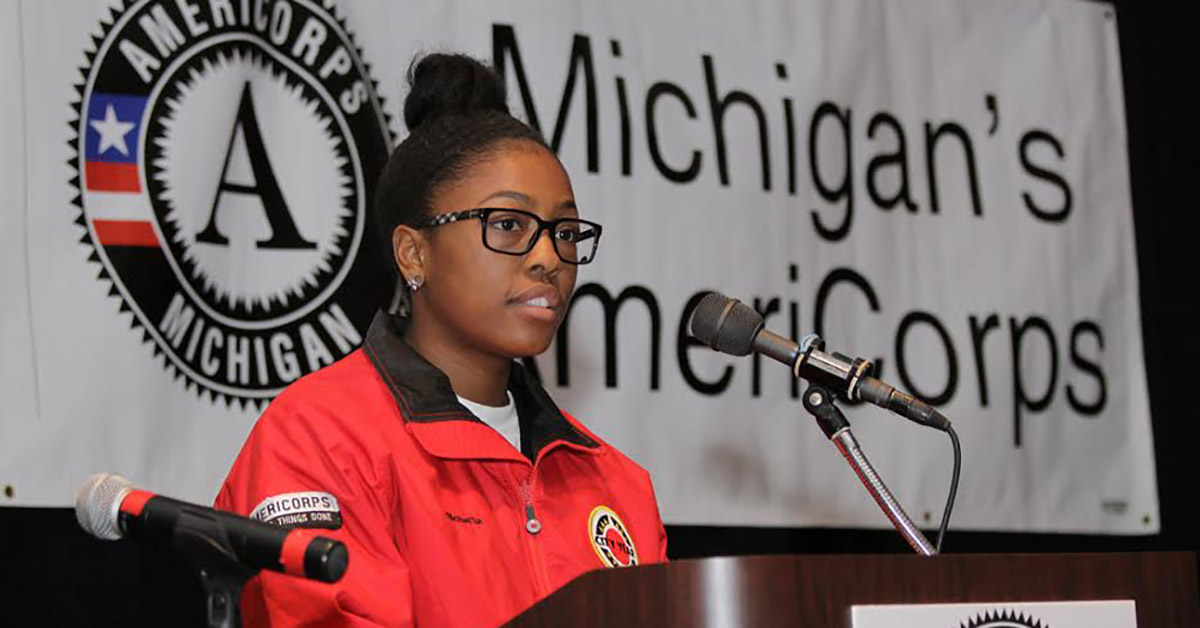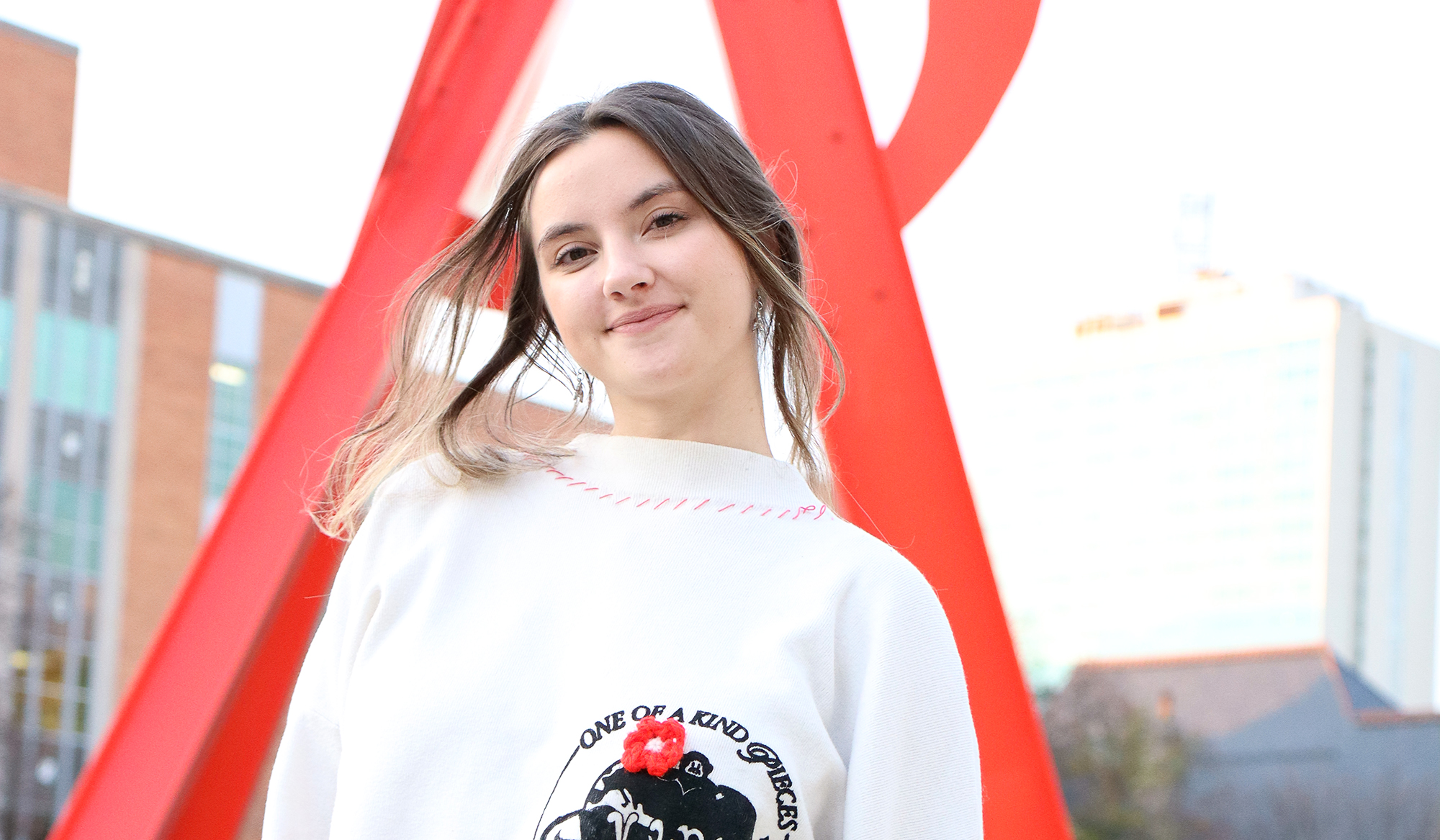Growing up in Detroit, Rikki Washam witnessed the problems of a struggling education system. So when she discovered City Year—an AmeriCorps program in which members serve in public schools in highly impoverished urban areas—she signed up upon graduation. Now, after serving a year in each in Rhode Island and Michigan, she has become a permanent City Year employee in Detroit. Read here what she has learned and has gained from the City Year experience.
How did you get involved with City Year?
City Year came to a career fair right before I graduated from U-M. I remembered hearing about City Year, which is part of the AmeriCorps program, in high school. They hire high school and recent college grads to help teachers and work with the students in grades 3-9 in public schools. City Year is now in 28 cities across the country working in highly impoverished urban areas.
I grew up in Detroit and understood how an education system can fluctuate. If Detroit was struggling with these issues, I wondered what other black and brown communities were experiencing. I started my first year of service as a City Year AmeriCorps member in 2014-2015 in Providence, Rhode Island. I served in an 8th grade core math class, working with kids in math, attendance, and leadership (behavior issues).
What surprised you the most about working in Providence public schools?
I was really surprised by the parallels I saw in terms of how students were addressed, their behaviors, and the issues around retention. The administrative parallels peaked my interest even more. Here I was thinking these isolated instances only happen in Detroit. This is happening all over the country, and it made sense why City Year exists in these communities.
What did you learn working with the students?
They were marginalized and perceived as students who were really dangerous, aggressive, and didn’t value education, or put in much effort. As if they chose to be in the situation they’re in. Growing up as a DPS (Detroit Public School) student, I had a lot of friends who were really intelligent, but didn’t apply themselves in class because they weren’t being challenged academically. But people are geniuses in different ways, multiple types of intelligence exist, like artists. As an adult, I now had a different perspective. I was amazed by their potential. The kids were so brilliant, but as a society the emphasis is always on traditional education. The arts are important too and can peak their interest in education.
How did you end up back in Detroit?
Following the year in Rhode Island, I returned to Detroit as a team leader for City Year Detroit at Cody High School for the 2015-2016 school year. During that school year, I guided a team of nine AmeriCorps members who did exactly what I had done the previous year. And now this year, I am a permanent staff member at City Year Detroit. I am developing and managing partnerships with school administration and personnel to ensure the necessary conditions and resources are in place for my team of 10 corps members.
How do you think your time at U-M shaped you?
The opportunities that existed at Michigan really taught me what service entails. It helped to transform my way of thinking. There were a lot of programs and classes I took that put me directly into communities that needed a lot of help. I learned about selflessness. But it was also my failures at Michigan that helped define who I was, and helped me realize what I wanted to do in this world. I just want to help people succeed, to feel included, to feel affirmed. I want to validate experiences that people face coming from diverse backgrounds.
Do you have any advice for students with similar interests?
Yes! Just be willing to put yourself out there. Trust that you can make a difference. Experience all kinds of community service. Serving someone else really means taking yourself out of the equation and assessing the needs of others. It doesn’t have to be something like City Year, it can be something shorter for just a couple of months, or weeks, or something intermittently. Giving your time to help someone is going to benefit them whether or not you see the impact immediately.
Anna Haritos is a junior studying biopsychology cognition and neuroscience, and modern Greek at U-M.





